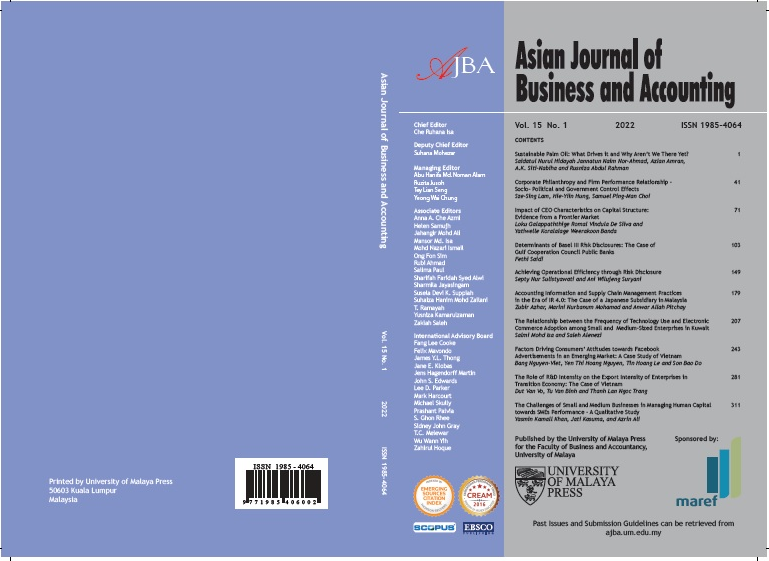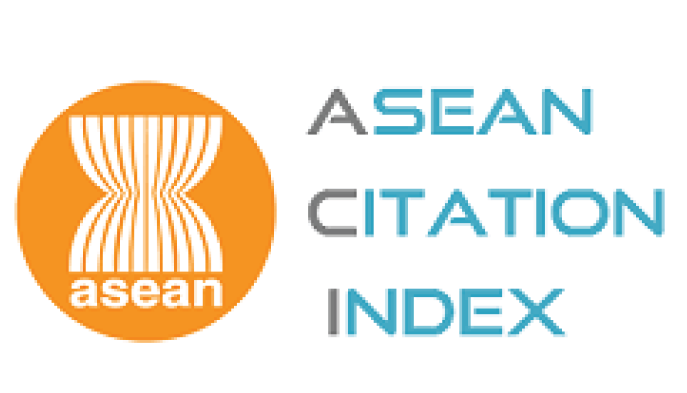Sustainable Palm Oil: What Drives it and Why Aren’t We There Yet?
DOI:
https://doi.org/10.22452/ajba.vol15no1.1Keywords:
Organisational Change, Neo-institutional Theory, Legitimacy Theory, Palm Oil, Sustainability Reporting and PracticeAbstract
Manuscript type: Research paper
Research aims: This study explores the institutional pressure and motivation that drives Malaysian palm oil companies to embark on sustainability practices, and uncovers the impediments of substantive change in producing truly sustainable palm oil.
Design/Methodology/Approach: A case study methodology was employed, gathering primary and secondary data through semistructured interviews with the company’s personnel and external stakeholders, through informal conversations and group discussions with company workers, document analyses, and observations. The neo-institutional and legitimacy theory were used as the primary lens to explain the study findings.
Research findings: The results indicate that both external pressures and internal issues have forced the company to engage in sustainability practices – primarily through certification. Unlike the independent stakeholder pressure found in previous studies, a chain reaction of pressures was found from NGOs and competitors to multinational buyers, whom in turn put pressure on the case company, thus jeopardising their financial bottom lines. Regulatory
pressures, conforming to the industry norms, wooing host country’s government, investors, and financiers add to the external motivation. Reputational problems and labour shortages, business case for sustainability, and the philanthropic nature of family-owned firms are the internal elements behind the endeavour. The barrier to change
towards sustainability was mainly caused by cost concern, technical difficulties, mindset of workers, unsupportive business environment and impracticalities of safety equipment design.
Originality/value: The findings shed light on the inner motive and barriers of change towards producing sustainable palm oil, the understanding of which is vital in driving further substantive changes in the palm oil industry towards sustainable development.
Research limitation/Implication: The study was restricted to a single case company in the Malaysian palm oil industry and hence, generalisation of the study findings onto another context should be
done in a cautious manner.
Keywords: Organisational change, Neo-institutional theory, Legitimacy theory, Palm oil, Sustainability reporting and practice
JEL Classification: Q56








